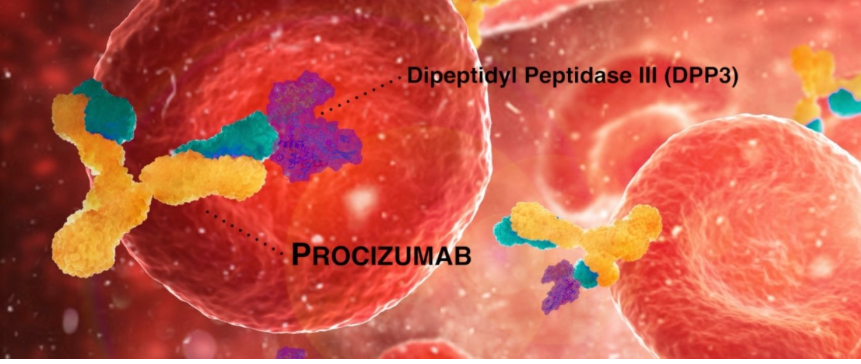
4Teen4’s DPP3 predicts burn mortality
4TEEN4 Pharmaceuticals GmbH published data suggesting that high plasma levels of dipeptidyl peptidase 3 were indicative for upcoming multiple organ failure in burn patients.
High blood concentrations of a biomarker, previously described as indicator of massive cell death and inflammation, has been shown to be associated with organ failure fatal outcomes in patients with severe burns. Decreasing blood levels of the enzyme dipeptidyl peptidas 3 (DPP3), which is likely to be released upon necrosis to the bloodstram and cleave angiotensin 2 there, might indicate a substantially reduced risk of mortality, speculate the authors of the study. Angiotensin 2 is a crucial regulator of kidney hemodynamics and heart function.
Preclinical research carried out by 4Teen4 Pharmaceuticals GmbH suggest that unphysiologically low levels of angiotensin 2 rapidly lead to cardiac depression and ultimately organ failure. Further preclinical tests show that administration of the anti-DPP3 antibody procizumab,developed by 4TEEN4, immediately normalise angiotensin 2 and enkephalin blood levels and reverse acute short-term organ dysfunction due to decreased cardiac output and impaired kidney hemodynamics.
If 4Teen4’s hypothesis prooves true, procizumab treatment might generally help stabilize critically ill patients at intensive care units (ICUs) who face massive cell death, for example from dysfuction of their kidneys, lungs or heart such as COVID-19 patients undergoing ARDS, shock and organ failure. 4Teen4 is in preparations for clinical trials with the antibody next year currently setting up an GMP process to produce clinical lots by H2/2020.
"The new data adds to the growing body of evidence that places the cardiac depressant factor DPP3 in strong connection with short-term organ failure and high mortality in critical care settings", said Dr. Andreas Bergmann serial entrepreneur and mastermind behind 4Teen4 and Sphingotec GmbH, a diagnostics company that has licenced DPP3 for diagnostic purposes.



 adobe.stock.com - ipopba
adobe.stock.com - ipopba BioDlink
BioDlink